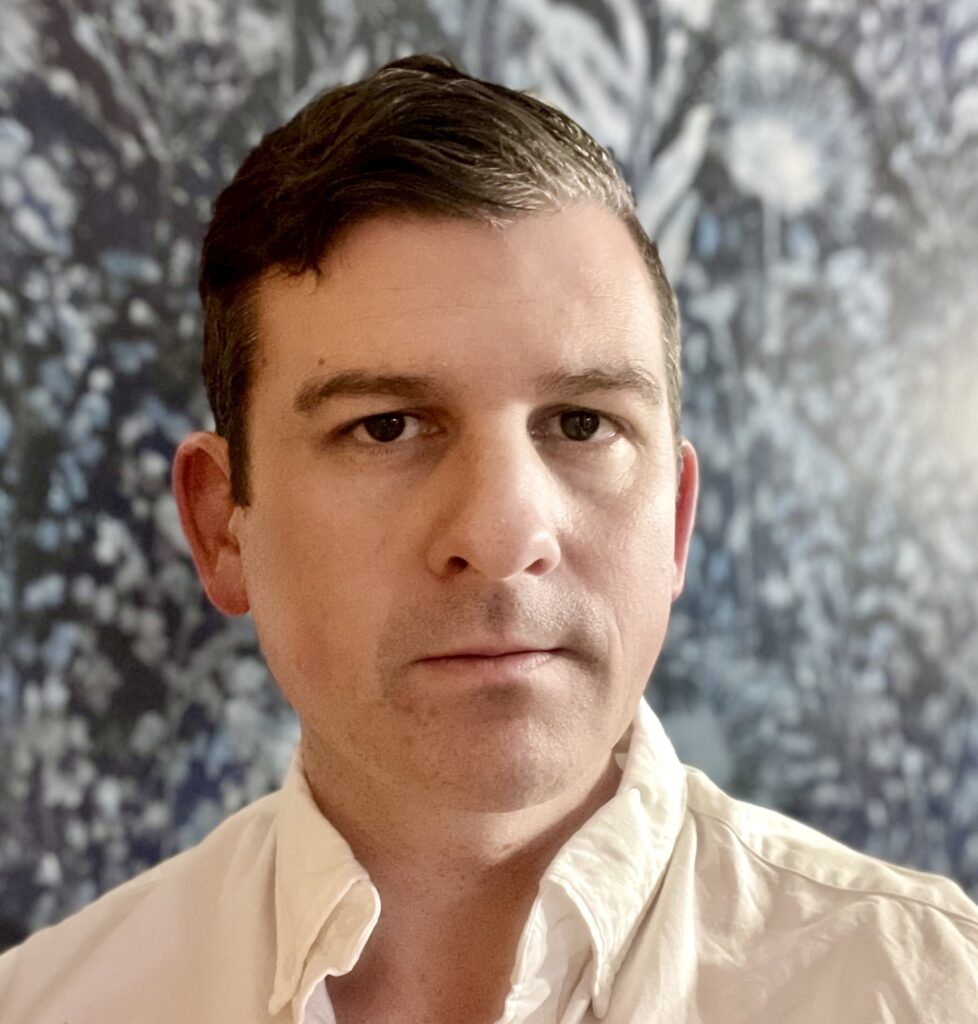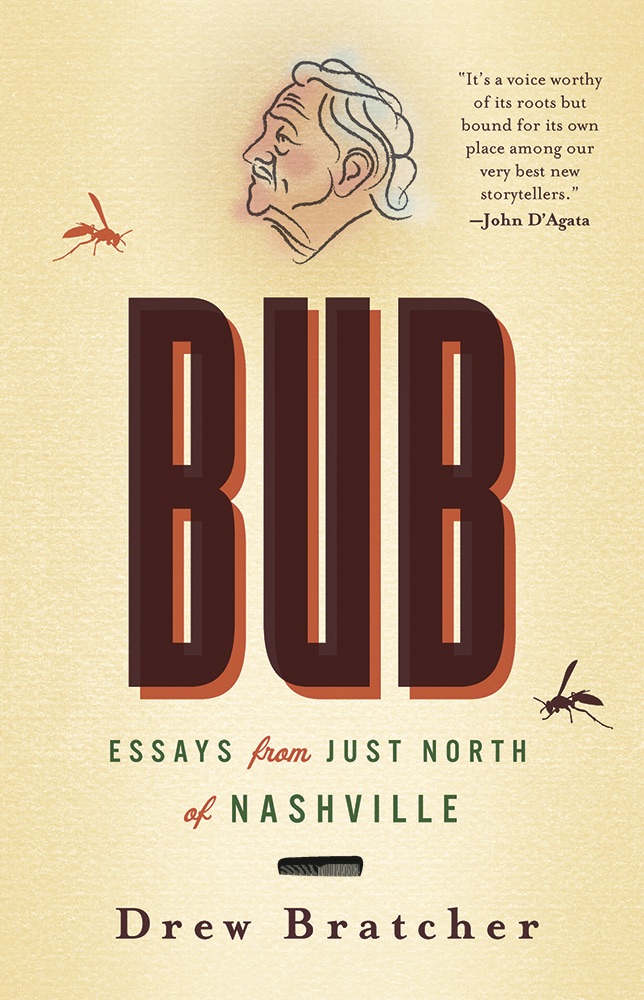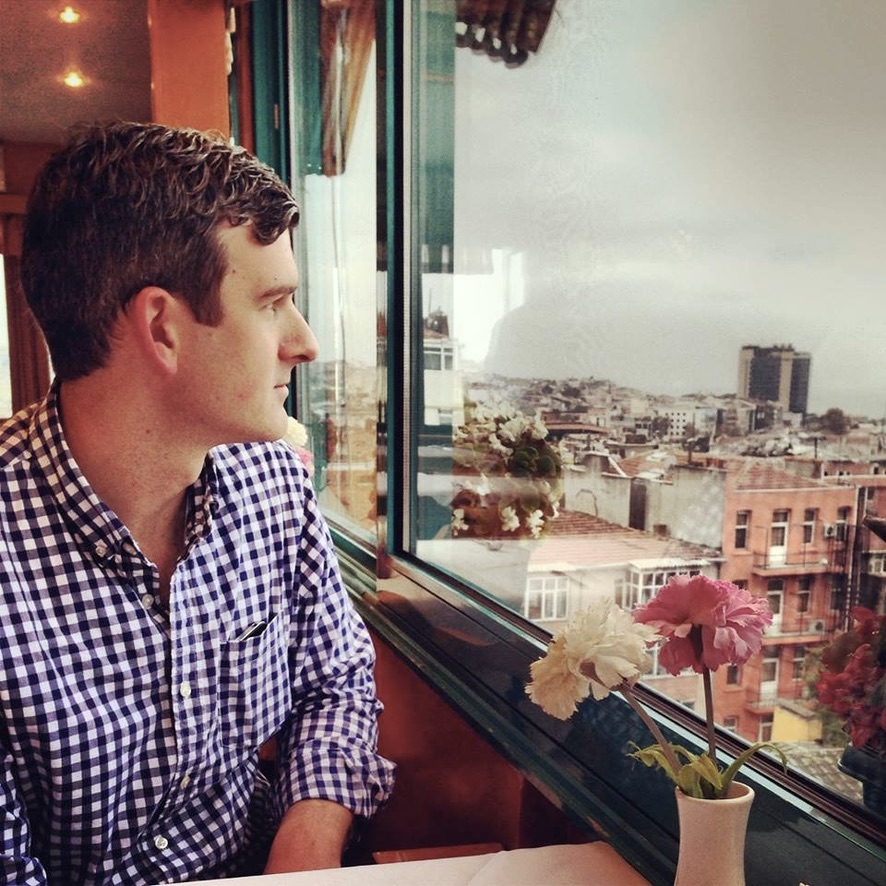The first time I met Professor Drew Bratcher, I walked out on him. It was my first year as an editor for Kodon, Wheaton’s literary and art journal. He was the faculty advisor for The Record, our campus newspaper, so he had been invited to a Kodon meeting to share his experience of the writing life. He ended up talking about everything from working as a journalist on Capitol Hill to the impact of the 2008 recession on the writing industry. As an impressionable college student barely starting my sophomore year, I was intimidated and enthralled in equal parts.
Bratcher seemed to me a weary, rugged hero, a brilliant mind who made it as a writer despite insurmountable odds. I wanted to soak in his words for hours. Unfortunately, the meeting had already run longer than usual, and I had to report for duty at the Writing Center. I stalled as long as I could, waiting until the last minute and then some. Finally, in a flurry of awkwardness, I interrupted him to excuse myself and dashed out of the room, red in the face.
After that first encounter, I knew there was so much I wanted to learn from him. Thankfully, I’ve had a year and a half of classes and meetings since then to do just that.

A Country Man
Bratcher, affectionately called Drew by many of his students, teaches writing classes in Wheaton’s English department. He has become one of those fan-favorite professors whom students recommend to anyone who will listen, whether they hope to get a Ph.D. in English or can’t tell an adjective from an adverb. He earned his Bachelor of Journalism from the University of Missouri and his M.F.A. in Creative Writing from the University of Iowa, but his roots as a writer stretch all the way back to Nashville.
Bratcher was born and raised in the hills north of the city, and its culture runs through his veins. From the gravelly tones of his Tennessee twang to the country-infused musicality of his prose, it’s impossible to miss, and nowhere is it more evident than in his book Bub: Essays from Just North of Nashville, published this past November.
Every writer has their question, the cocklebur under their saddle. For me, that question is ‘Where’s home? What does it mean to be from somewhere?’
Drew Bratcher
He describes Bub as “a book about how the things that we’re given early on are frames of reference. They become the things that we use to make sense of our lives.” The book combines essays of memoir and arts criticism, refracting his experiences through the lens of country music to achieve a personal universality that resonates far beyond the South.
Over the course of the book’s 180 pages, Bratcher wrestles with the roots that anchor him to Nashville. Quoting American poet Robert Penn Warren, he says, “Every writer has their question, the cocklebur under their saddle. For me, that question is ‘Where’s home? What does it mean to be from somewhere?’” Nashville being Nashville, country music is a major part of his answer. As he writes about artists from Charley Pride to a young Taylor Swift, readers observe the myriad ways country music has clung to him and shaped his view of the world.
Chasing Bub
The centerpiece of the book is the expansive title essay, “Bub.” It takes its name from Bratcher’s grandfather, who passed away during the early years of the pandemic. As a result, his funeral had to be a muted, sparsely attended affair, one that could not do justice to the beloved, magnanimous figure he was. Dissatisfied, Bratcher wrote “Bub” to find closure on his own terms. Inspired by the English art critic John Berger, Bratcher framed the essay as a catalog of Bub’s physical appearance and possessions, each connecting to stories intended to capture his grandfather in all his idiosyncratic complexities.

When I spoke with Bratcher, he described the writing experience with a contented, almost wistful smile. “The essay wrote itself,” he said. “Once I found that frame, I could not wait to get up and write. I felt like I was chasing him, like I could still see him. That was a special couple of months, getting to think almost exclusively about my grandfather, and I do feel as if I did it.”
From a Family of Bards
Bub’s stories played a formative role in Bratcher’s life, a role that was perfectly encapsulated in a lyric he scrawled out in high school: “Sermons ain’t as sacred / as when grandaddy speaks / Tales are tall and ancient / down here in Tennessee.” But Bub was just one part of a larger tradition of storytellers. All day long, Bratcher’s parents and aunts and uncles would spin yarns of their own.
The stories themselves did not need remarkable subjects. Typically, they were just about what happened that day. Nevertheless, they possessed a profound gravity for the young Bratcher, and all of it came to a head on the family porch. After dinner, the kids would go to bed, and the adults would gather on the front porch of their house and talk for hours. It was a sacred time when the rest of the world could be forgotten and all that mattered was the stories. The day Bratcher was first invited to stay up late and join them signified a powerful coming-of-age moment in his life.
However, he was never entirely confident in his own storytelling abilities. He feared he could not compete with the wealth of material at his family’s disposal, so he was often scared to speak up during storytelling sessions. Instead, he turned to writing as his preferred outlet. The written word offered him a private space to work with his family’s example his own way.
Forward and Back
Now, as he writes for a larger audience, Bratcher pays homage to his roots. Sure, things can get dicey when he writes about his family for anyone with a smartphone to read, but even while he leans into his own mode, he pays tribute to the people who shaped him.

There is a story he tells about his grandfather Bub’s response to his writing. “When I was in high school,” he says, “I was reading a lot of poetry, so I wrote my grandfather a poem for Christmas. At first, he didn’t know what to do with it. But later that day, he told me, ‘Thank you for the poem.’ He paused, then continued, ‘Don’t forget where you came from.’ What he was saying was, Write if that’s what you’re going to do. But remember. Remember these people.”
And so he does. The stories and songs of his family linger in Bratcher’s memory, influencing everything from conversations in his classroom to the cadence of his writing. He might not be one to join his family in late-night porch chats, but as he blazes his own trail, it’s their torch he carries to light the way.
You can find Bub: Essays from Just North of Nashville on Amazon!